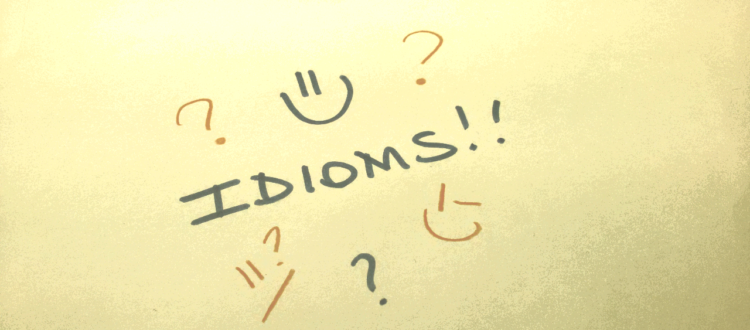Espressioni idiomatiche inglesi- I parte
Espressioni idiomatiche inglesi
La lingua inglese , come ogni altra, è ricca di espressioni idiomatiche cioè modi di dire, di solito difficili da tradurre se non facendo ricorso ad espressioni più o meno equivalenti nella lingua d’appartenenza.
Da questa settimana, vi faremo compagnia con dieci espressioni idiomatiche alla volta; le spiegheremo in modo dettagliato nel contesto di una frase per aiutarvi ad utilizzarle nello speaking o nel writing quotidiano.
Potete inserirle in una mail, in un racconto o durante la conversazione in Sala Chat: l’importante è familiarizzare con le espressioni idiomatiche per cogliere e descrivere una situazione o un significato al pari di un native speaker.
1) Rags to riches
What does it mean? (informal) To go from poverty to great wealth
Example – He was born into a poor family and now he’s worth £ 60 million pounds- That’s a real rags to riches story!
2) Make or break
What does it mean? A situation which can turn either a great success or a total failure
Example – This business deal is make or barke for our company. If we lose this contract, we make go bankrupt.
3) Dead in the water
What does it mean? When something is dead in the water, it isn’t making any progress.
Example – The proposal to change the terms of the agreement is dead in the water.
4) Reduce to tears
What does it mean? Crying because of someone’s behavior.
Example – When Jim told her he was leaving for another woman, the news reduced her to tears. .
5) Look on the bright side
What does it mean? When you look on the bright side, you’re able to see the positive side of an unpleasant situation.
Example – “Ok, so you lost your job. But look on the bright side: now you can start writing the book you’ve always dreamt about.
6) Proud as a peacock
What does it mean? It refers to an extremely proud, vain and self-centered person.
Example – Ryan was strutting around as proud as a peacock since he bought that new car.
7)Keep a stiff upper lip
What does it mean? You use this expression to define a person who doesn’t show his emotions.
Example – As he listened to the bad news from his doctor, he managed to keep a stiff upper lip.
8) Separate sheep from goats
or Separate the wheat from the chaff
What does it mean? – You use this expression, when you examine a group of people to tell the suitable people to carry out a task
Example – The coreographer conducted an audition to separate sheep from goats
9) It takes two to tango
What does it mean? It means that certain kind of actions or a communication take more than one person to be accomplished. It is also used to emphasize that two people involved in difficult situation must accept the blame.
Example: Philip waits the perfect occasion to argue, but it takes two to tango and I won’t stoop to his level.
10) Out of the blue
What does it mean? Something that happens suddenly or unexpectedly
Example: Yesterday, out of the blue, Tanya told everybody she was leaving.
Nel prossimo post sulle espressioni idiomatiche, troverete altri modi di dire usati comunemente nello speaking quotidiano. Voi, quali preferite utilizzare?
Se questo articolo vi è piaciuto, lasciateci un commento e condividetelo sui social.Alla prossima!



N 3 is it correct? “Dead in the water”. Maybe “in the dead water”, isn’t it?
It is, Mario. The correct expression in “dead in the water”.:)